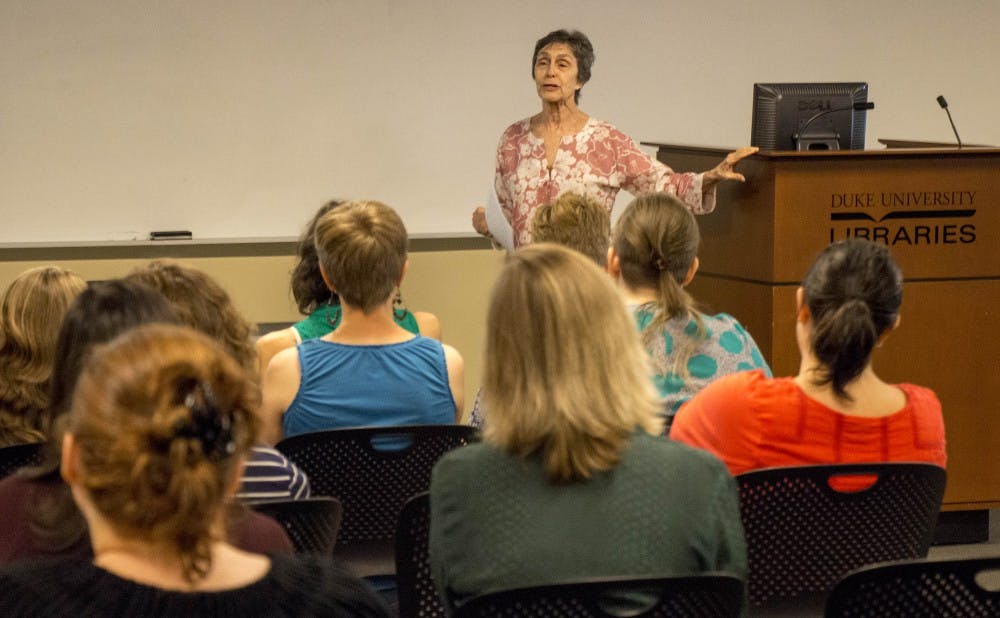Digital archiving and feminism came together in Perkins Library Wednesday, as librarians discussed Duke's collection on the women's liberation movement with renowned activist Alix Kates Shulman.
Hosted by the Sallie Bingham Center for Women’s History and Culture, "Digitizing the Women's Liberation Movement" presented the library's efforts to modernize its feminist movement primary sources for the digital age. Meanwhile, Shulman—who is featured throughout the library's collection—shared her experiences as one of the leaders of second-wave feminism.

Laura Micham, director of the Sallie Bingham Center and one of the event's organizers, said it felt natural to bring Shulman as a speaker, as her photographs and papers are a centerpiece of the collection.
“You can look at the digital collection, it’s great, all kinds of content and lots to learn, lots to see," Micham said. "But to hear from someone who actually lived it—she’s actually in those photographs—makes it so much real, so much more exciting.”
Approximately 40 students, staff and faculty gathered in Perkins for the Wednesday morning discussion. Shulman talked about her career as an activist, as well as behind-the-scenes stories of historical moments she took part in—including the 1968 protest of the Miss America Pageant, which is extensively documented in the library's collection.
"We had a lot of fun," Shulman said of the demonstration, which involved protestors crowning a sheep as Miss America and tossing bras in a garbage can.

When asked what younger generations can learn from past decades' activism, Shulman said that social justice concerns should come from one's own experiences, rather than from being taught by others. She noted that large-scale movements tend to bring out consciousness towards social injustice.
“It is very, very helpful when there is a movement going on. Those ideas … you come to hear them, and you come to think about them,” Shulman said. “In the absence of the movement, I think reading is the way to do it…especially for students, reading changes the way you think about things.”

Created in 1997 for a woman's studies course, the archival website initially featured basic text information on women’s rights activism. But in recent years the site has been transformed into an archive for scanned images of these documents, with several special digital collections on specific events.
The site has grown to become one of the library's most popular digital archives, said Kelly Wooten, research services and collection development librarian for the Bingham Center. Noting that the collection receives more than 11,000 monthly page views, Wooten said that the site's popularity is “significant, and it shows consistent interest in this content.”
Get The Chronicle straight to your inbox
Signup for our weekly newsletter. Cancel at any time.

